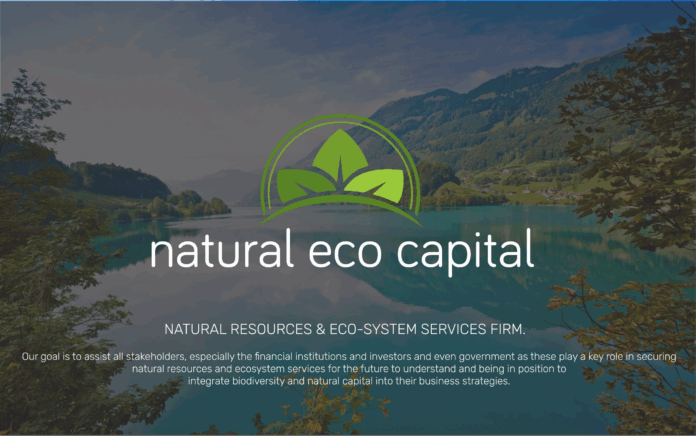By Eugene Itua
By 2028, a new era of corporate accountability will dawn in Nigeria.
The Federal Government’s decision to mandate the adoption of the IFRS Sustainability Disclosure Standards (IFRS S1 and S2) is not just a regulatory update.
It is a fundamental shift in the business landscape. This moment is not just a crossroads. It is a call to action. Nigerian companies must act now to turn this into a strategic masterstroke, unlocking investment and building lasting value.
The truth is that many companies are not ready. Sustainability is often treated as a peripheral, box-ticking exercise managed by a siloed department and viewed as a cost. This exposes a critical capacity gap that, if left unaddressed, could leave Nigerian businesses at a significant disadvantage on the global stage.
To turn this mandate into a national competitive advantage, we must move beyond a compliance mindset. We must initiate a national conversation about integrating sustainability into the core of our business strategies as a fundamental driver of innovation, resilience, and profitability.
Not Just for the Big Players: Why SMEs Must Embrace Sustainability
It is a common misconception that sustainability strategy is a luxury reserved for large corporations with dedicated departments. In Nigeria, where Small and Medium-sized Enterprises (SMEs) are the engine of the economy, this thinking is not just flawed—it is dangerous. SMEs have the potential to lead the way in sustainability, not just follow the footsteps of larger corporations.
Sustainability is a critical issue for SMEs for several key reasons.
Supply Chain Integration
SMEs are the lifeblood of the supply chains of larger corporations. As these corporations begin reporting on their value chain risks and impacts (a requirement under the new standards), they will demand greater transparency and better sustainability performance from their SME partners. Being unprepared means risking valuable contracts.
Access to Capital
Increasingly, banks and investors are scrutinising the environmental and social performance of businesses before lending or investing, regardless of their size. Strong sustainability practices can unlock new financing opportunities for SMEs.
Operational Efficiency
Sustainability is about more than just the environment; it is about efficiency. Reducing energy consumption, minimising waste, and optimising resource use directly lower operational costs and improve the bottom line.
Innovation and Agility
Being smaller, SMEs can often innovate and adapt more quickly. For instance, embracing sustainability can open up new markets, such as the growing demand for eco-friendly products, spur the creation of green products and services, and attract top talent looking to work for purpose-driven companies. These are not just theoretical benefits, but real opportunities that sustainability can bring to SMEs.
The 2028 mandate will affect the entire business ecosystem. For SMEs, building capacity now is not optional—it is essential for survival and growth.
A Strategic Framework for Future-Proofing Your Business
To truly capitalise on this shift, Nigerian businesses should adopt a strategic framework built on three interconnected pillars of value.
Pillar 1: From Reporting to Real Impact
The new IFRS standards provide a standardised language (IFRS S1 for general disclosures and IFRS S2 for climate-related disclosures) that investors understand and trust. However, the data reported is useless without a framework for action.
This is where standards like the SDG Impact Standards, developed by the UNDP, become invaluable. They provide the internal management logic to act on that data, helping companies turn sustainability from a cost of compliance into a core competitive strategy, enabling them to make informed, impactful decisions that drive growth.
Pillar 2: The Link Between Biodiversity and the Bottom Line
The phrase ‘there is no business on a dead planet’ is not a slogan; it is a fundamental principle of enterprise risk management. Nigerian businesses heavily depend on ‘natural capital’—assets such as clean water, a stable climate, and biodiversity. Forward-thinking companies must learn to measure, manage, and value this relationship.
Doing so mitigates hidden supply chain risks, sparks innovation in resource efficiency, and builds profound business resilience, positioning them as attractive, future-proof, ‘Nature-Positive’ businesses. A ‘Nature-Positive’ business is one that not only minimizes its negative impact on the environment but actively contributes to its restoration and preservation.
Pillar 3: Weaving Sustainability into Your Corporate DNA
The ultimate goal is to integrate sustainability so deeply that it becomes an inseparable part of financial performance. This means using sustainability insights to inform the highest levels of corporate strategy.
It requires aligning everything—from product development and supply chain management to capital allocation—with long-term sustainability goals. This is where companies will move beyond mere compliance to unlock profound, long-term value, securing their future and attracting the capital needed to thrive.
A Call for Pioneers: Seizing Nigeria’s Sustainable Future
The 2028 deadline is not an endpoint; it is the starting line. It is a call to action for a new generation of Nigerian business leaders who are willing to look beyond the next quarter’s earnings. It is a call to embrace sustainability, a decision that will shape the future of your business and the Nigerian economy.
This is the moment for every CEO, board member, and entrepreneur to ask the hard questions: Is our business model resilient for a resource-constrained future? Do we truly understand our impact and dependencies on society and the environment? Are we building an enterprise that will thrive for the next 50 years, not just the next five?
The path to a sustainable future requires courage, innovation, and a radical shift in perspective. Those who begin the journey now—re-evaluating their strategy, investing in capacity, and embracing transparency—will not only ensure their success but will also be at the forefront of shaping a more competitive, resilient, and prosperous Nigerian economy for all. Let’s build that future together.
Dr. Eugene Itua is CEO of Natural Eco Capital & ED, Africa Green Economy & Sustainability Institute




